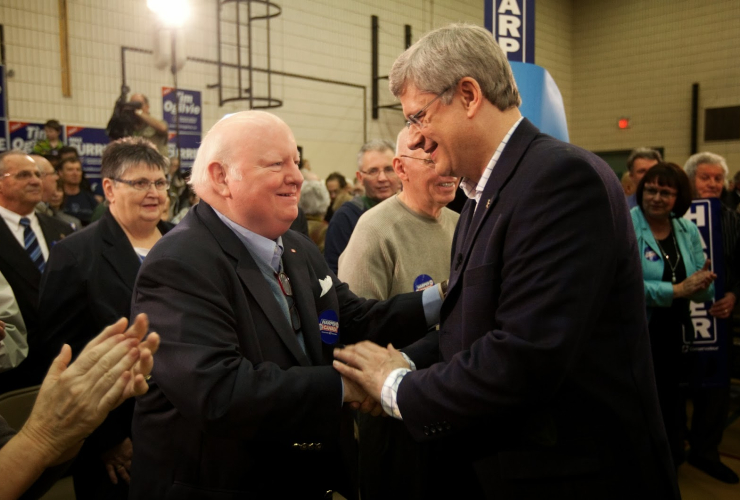We’re having the wrong trial in Ottawa today.
This whole country has turned itself into a pretzel over an imaginary replay of the Watergate drama, with the single objective of sticking the prime minister with Nigel Wright’s $90,000 payment to Mike Duffy.
The language, the tropes, the expectations are virtually identical to the Nixon-spectacle. What did the prime minister know, and when did he know it? The nation’s media are holding their collective breath while Canada awaits the most anticipated political witness since John Dean took the stand in Washington 42 years ago.
And there are some remarkable similarities, although not perhaps the ones some envision. As Dean himself put it, the events that culminated in the Watergate break-in weren't the product of conscious design but rather an accident of fate.
And so it is with Nigel Wright and the Duffy Senate expenses scandal. If any picture emerges from the circumstances surrounding the Duffy affair, it's one of Wright chasing an accelerating time-bomb downhill. Until he caught it.
For a host of reasons, Nigel Wright is not John Dean and this is not Watergate.
For one thing, Stephen Harper isn't on trial; Mike Duffy is. It’s entirely possible that the Crown will object to any line of questioning that ventures into the territory of what the prime minister knew, because the answer isn’t relevant to any of the charges against Duffy. Whatever Harper knew or didn’t know has no bearing on Duffy’s guilt or innocence.
Worse, expectations of a Perry Mason revelatory moment distort public perception, drawing us away from the deeper scandal hiding in plain view.
According to an affidavit sworn by RCMP Cpl. Greg Horton, it appears that events started to unravel on Wright through the late winter and early spring of 2013. As Duffy grew increasingly unpredictable, Wright encountered other obstacles. Chris Montgomery, an experienced Privy Council employee assigned to Senate Government House Leader Marjorie LeBreton, mounted a vigorous defence of the Senate's independence from PMO control.
As Wright's troubles multiplied, he appeared to grow increasingly frustrated and almost desperate.
What was it about Duffy’s spending confab — over Brazeau and Wallin's — that drew the PMO into such perilous conduct? What was Wright so afraid of that he paid $90,000 from his own pocket to keep it from public scrutiny? Why is Duffy charged for accepting Wright’s money, but Wright isn’t charged for paying it?
Where is the breach of trust investigation against Wright, other PMO officials and Conservative senators? Horton's report suggests that at Wright’s behest they neutralized negative findings against Duffy by the external Deloitte auditors. Further, they appear to have subverted due process in order to insert PMO-dictated language into Senate committee conclusions.
Where is the investigation of Sen. Irving Gerstein, who, according to Cpl. Horton, circumvented government channels and used his Conservative Party relationship with Deloitte to obtain key confidential information pertaining to the government's Duffy audit? This confidential information enabled Wright to formulate and execute a strategy designed to insulate both Duffy and ultimately Harper from the widening scandal. Not that it did much good in the end.
We are far, far from the bottom of this. But wild hopes over Wright’s testimony obscure the much more important questions that have yet to emerge.
Make no mistake. Nigel Wright's evidence won't provide that John Dean moment. Whether he had the tacit or express approval of Stephen Harper, Wright is the architect of this entire sordid Duffy affair.
And the record shows what he thinks of due process.
Watergate Hearings: John Dean's Opening Statement (1973)




Comments